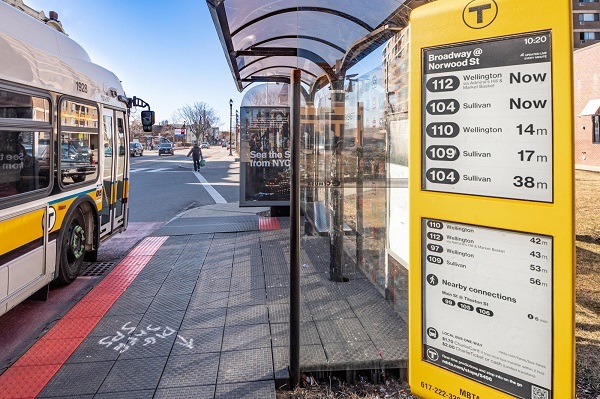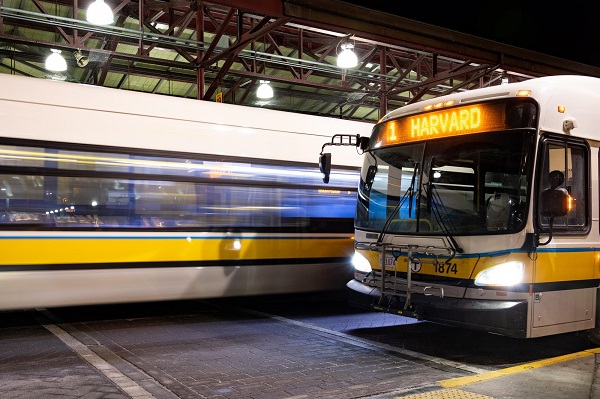Labor, Community to FMCB: “Massive” MBTA Budget Cuts The Wrong Road

Gutting service provided by one of the nation’s largest mass transit systems during the coronavirus pandemic would be shortsighted, several community and labor groups testified.
BOSTON — A large coalition of community groups, environmental organizations, and transit unions is warning that the T could do irreparable harm to itself and the state’s fledgling recovery if the FMCB adopts massive cuts in the midst of the coronavirus pandemic. The MBTA’s Fiscal Management and Control Board (FMCB) is considering major service cuts in the face of revenue shortfalls.
Community and labor groups, including members of the Green Justice Coalition, today urged FMCB members to delay decisions on service cuts and seek new funding from the Massachusetts legislature and federal government to meet the T’s expenses. Worker and rider representatives urged the board to hold off on cuts given uncertainty in the political and health realities, and called for public outreach and input before decisions are made. The FMCB is considering
on bus, train and ferry service by up to hundreds of millions of dollars to cover a budget gap caused largely by a drop in fare revenues due to the COVID-19 pandemic.

“Policy experts agree that gutting service will deepen the longstanding inequities and stifle our recovery by blocking access to jobs for people who cannot get to work without transit,” wrote Steve Tolman, President, Massachusetts AFL-CIO. “All of our communities deserve access to an equitable, and accessible transit system. But by rushing into these budget cuts, the Board is excluding the voices of those most affected by the COVID-19 pandemic.”
In fiscal year 2022, the T could have an operating budget deficit of up to $577 million, according to the MBTA staff. But coalition members said making cuts to bridge any such shortfall would inflict significant long-term damage, and that the FMCB should seek new revenue by urging the legislature to fund the MBTA from progressive revenues such as an increase in the corporate income tax.

“The current schedule is too fast and does not leave time to gather public input. It is imperative to get as much of the public’s perspective on how it will impact their lives and areas where they live,” said Mike Vartabedian, Assistant Directing Business Representative, Machinist Union District 15. “Without this perspective, the MBTA may make permanent cuts that could be devastating to the people and businesses that rely on public transit the most.”
“The MBTA and so many people here in Massachusetts have struggled financially during the pandemic. But others — big corporations and billionaires — are doing better than ever,” said Collique Williams, Organizer, Community Labor United. “While the T has fallen hundreds of millions behind, 18 of the richest people in the state made $17 billion over the first three months of the pandemic alone. They can afford the tax revenue we need to keep public transit running.”
“It is too early to know how the community will bounce back from COVID-19, and the next 12 to 18 months will be crucial,” said Mark Liu, Director of Programs and Operations, Chinese Progressive Association (CPA). “We need FMCB to understand that permanent cuts are not the answer. This will leave long-term effects outlasting the coronavirus disruption. This will keep people from their jobs and separate people from their families, communities and services they rely on.”
“I urge the FMCB to call on the legislature to support progressive revenue proposals for state-level investment like raising tax rates on unearned income and corporate income, and to aggressively seek additional funding from the federal government and state legislature before cutting service from a single route or line,” said Olivia Nichols, Transit Justice Organizer, GreenRoots.
About the Green Justice Coalition
The Green Justice Coalition (GJC) is a partnership of community-based, environmental, and labor allies who lead campaigns that have a meaningful impact on working-class people and communities of color. Together, our members organize and advocate for a just transition to a sustainable economy that allows our communities to achieve environmental and economic justice.
